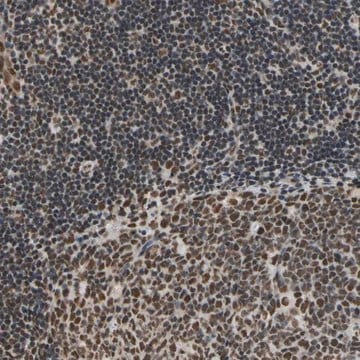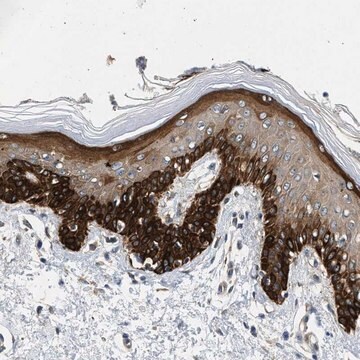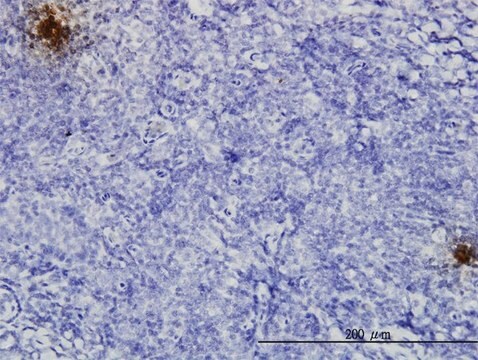R8903
Monoclonal Anti-hnRNP-K/J antibody produced in mouse
clone 3C2, purified immunoglobulin, buffered aqueous solution
Synonym(e):
Anti-Heterogeneous Nuclear Ribonucleoprotein K/J
About This Item
Empfohlene Produkte
Biologische Quelle
mouse
Konjugat
unconjugated
Antikörperform
purified immunoglobulin
Antikörper-Produkttyp
primary antibodies
Klon
3C2, monoclonal
Form
buffered aqueous solution
Mol-Gew.
antigen ~60 kDa
Speziesreaktivität
hamster, Xenopus, bovine, human
Methode(n)
immunocytochemistry: suitable
immunoprecipitation (IP): suitable
indirect ELISA: suitable
microarray: suitable
western blot: 0.1-0.2 μg/mL using total cell extract of MBDK cells
Isotyp
IgG2b
UniProt-Hinterlegungsnummer
Versandbedingung
dry ice
Lagertemp.
−20°C
Posttranslationale Modifikation Target
unmodified
Angaben zum Gen
human ... HNRNPK(3190)
Allgemeine Beschreibung
Immunogen
Anwendung
Biochem./physiol. Wirkung
Physikalische Form
Haftungsausschluss
Sie haben nicht das passende Produkt gefunden?
Probieren Sie unser Produkt-Auswahlhilfe. aus.
Lagerklassenschlüssel
10 - Combustible liquids
WGK
nwg
Flammpunkt (°F)
Not applicable
Flammpunkt (°C)
Not applicable
Analysenzertifikate (COA)
Suchen Sie nach Analysenzertifikate (COA), indem Sie die Lot-/Chargennummer des Produkts eingeben. Lot- und Chargennummern sind auf dem Produktetikett hinter den Wörtern ‘Lot’ oder ‘Batch’ (Lot oder Charge) zu finden.
Besitzen Sie dieses Produkt bereits?
In der Dokumentenbibliothek finden Sie die Dokumentation zu den Produkten, die Sie kürzlich erworben haben.
Unser Team von Wissenschaftlern verfügt über Erfahrung in allen Forschungsbereichen einschließlich Life Science, Materialwissenschaften, chemischer Synthese, Chromatographie, Analytik und vielen mehr..
Setzen Sie sich mit dem technischen Dienst in Verbindung.






